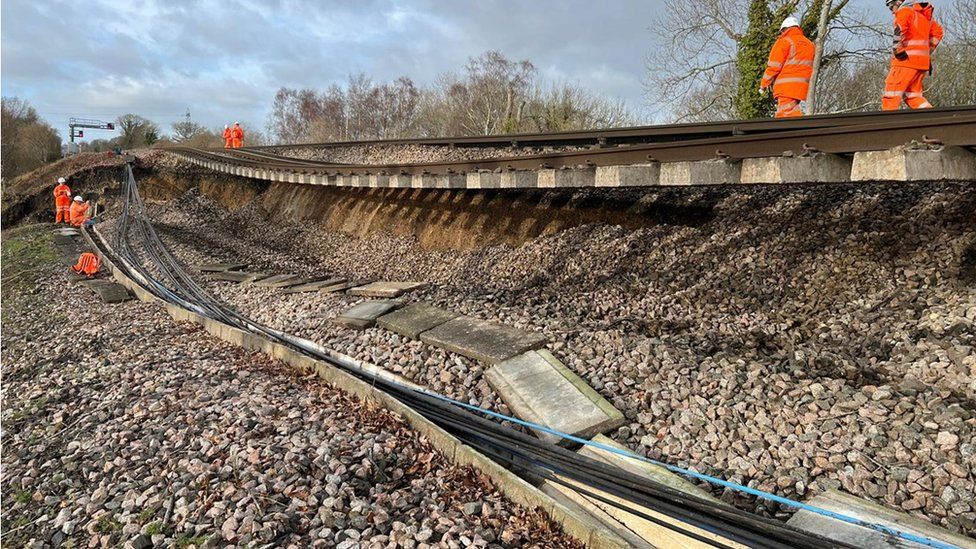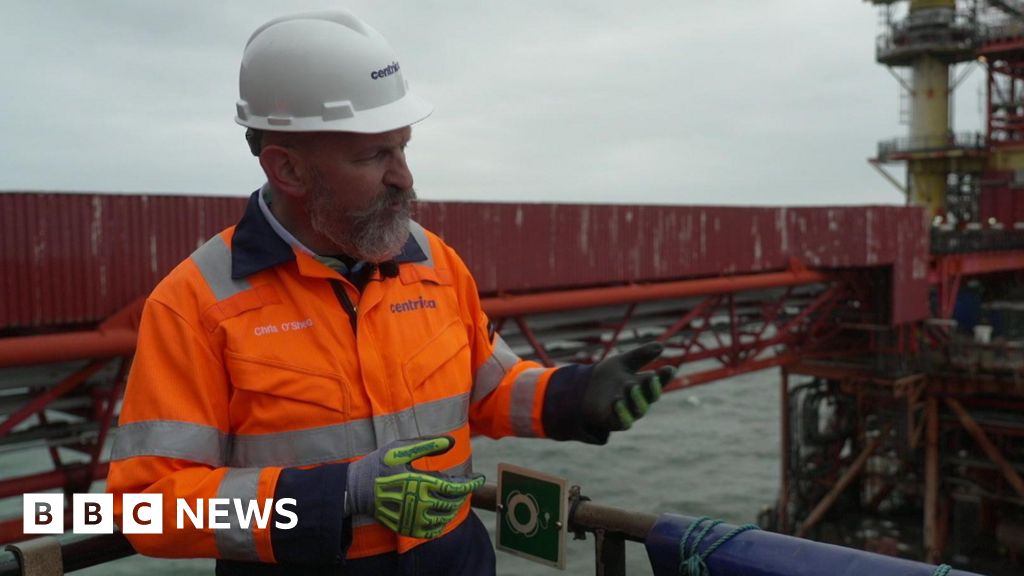ARTICLE AD BOX
 Image source, Network Rail
Image source, Network Rail
A landslip near Hook in Hampshire earlier this year closed the line for more than a month
By Katy Austin & Lucy Hooker
BBC Business
The railway infrastructure in England and Wales is likely to become less reliable over the next five years, the body responsible for its upkeep has said.
Network Rail looks after the tracks, bridges, tunnels, embankments and points that are crucial for trains to run safely.
In its new business plan it says a sharp rise in extreme weather events has damaged ageing infrastructure.
At the same time costs have risen.
As a result, investment will need to be focused on areas that will "bring the highest economic and social benefits", Network Rail said.
Chief executive Andrew Haines said that, given the constrained budget, funding would "need to go further than ever before".
The government has committed £44.1bn for the 2024-29 period of the strategic business plan, an increase of £3bn on the previous five-year period. But that is significantly below current levels of inflation and has to cover the cost of electricity for running trains, which was previously financed separately.
The plan, published on Friday, said there had been a 50% increase in "adverse weather impacts" over the past five years compared to the previous 10 - a trend that was expected to continue.
It also pointed out many rail structures had been installed in Victorian times, and their exposure to changing weather patterns meant more failures and weather-related disruption.
Older parts of the rail network infrastructure are particularly vulnerable, Network Rail said
Investment in tackling climate change and trying to make the railway more resilient - for example, improving drainage and earthworks - will double under the new plan, to £1.6bn.
Network Rail said it had sought to prioritise investment in weather resilience where possible, but keeping up the pace with available funding would be a "continued risk".
As a result of these factors Network Rail expects a "decrease in asset reliability" over the period of the plan.
Network Rail said it was balancing its expenditure and interventions in order to protect safety, but it expected "a small impact on train performance".
Friday's strategic plan covers England and Wales. A plan for Scotland will follow shortly, Network Rail said.
Rail infrastructure in Northern Ireland is owned by a separate transport operator, Translink.
'Difficult choices'
Network Rail is looking to make "efficiencies" of £3.4bn over the next five years and the strategic plan said parts of the network which generate less revenue would not be prioritised for investment, as part of "difficult choices and trade-offs".
A series of recent incidents have shown the problems that can be caused when ageing infrastructure fails, or extreme weather weakens embankments.
Part of a main line through Oxfordshire is closed until mid-June while work is done to repair the collapsing Nuneham viaduct.
Separately, a major landslip near Hook in Hampshire in January caused lengthy disruption along the main line which links London Waterloo with the South West of England.
The regulator, the Office of Rail and Road, has to approve the spending plans for Network Rail to implement them. It should issue a final determination by the end of the year.

 1 year ago
34
1 year ago
34








 English (US) ·
English (US) ·